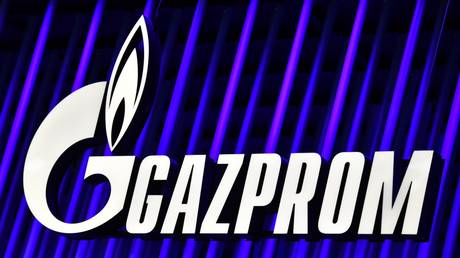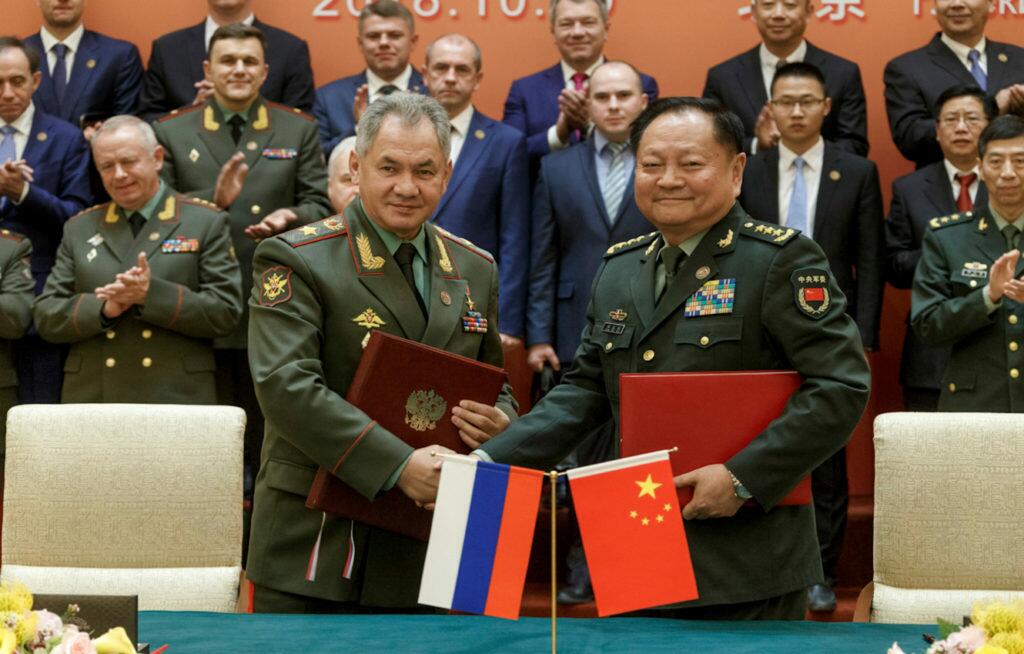RAND and the Malevolent Encirclement of Russia
by F. William Engdahl, New Eastern Outlook:

Over recent weeks a series of events in the states surrounding the Russian Federation has erupted that certainly are not being greeted with joy in the Kremlin. Each crisis center of itself is not a definitive game-changer for future Russian security. Taken together they suggest something far more ominous is unfolding against Moscow. A recent RAND study prepared for the US Army suggests with remarkable accuracy who might be behind what will undoubtedly become a major threat to Russian security in coming months.
The Turkish-backed attacks by Azerbaijan against Nagorno-Karabakh, igniting a territory after almost three decades of relative stalemate and ceasefire, the ongoing destabilization of Lukashenko in Belarus, the bizarre EU and UK behavior surrounding the alleged poisoning of Russian dissident Navalny and most recently, the mass protests in Kyrgyzstan, a former part of the Soviet Union in Central Asia, bear the fingerprints of the MI6 of Britain, the CIA and an array of regime-change private NGOs.
Nagorno-Karabakh
On September 27 military forces from Azerbaijan broke the 1994 ceasefire with Armenia over the conflict in predominantly ethnic- Armenian Nagorno-Karabakh. The heaviest fighting in years ensued on both sides as confrontation escalated. Turkey’s Erdogan came out openly in support of Baku against Armenia and Armenian-populated Nagorno-Karabakh, leading Nikol Pashinyan, the Prime Minister of Armenia, to accuse Turkey of “continuing a genocidal policy as a pragmatic task.” It was a clear reference to the 1915-23 Armenian charge of genocide of more than a million Armenian Christians by the Ottoman Empire. Turkey to this day refuses to acknowledge responsibility.
While Armenia blames Erdogan for backing Azerbaijan in the present conflict in the Caucasus, Russian oligarch Yevgeny Prigozhin, sometimes called “Putin’s chef” for his catering empire as well as his close ties to the Russian President, has said in an interview with a Turkish paper that the Armenia-Azeri conflict was provoked by “the Americans,” and that the Pashinyan regime is essentially in the service of the USA. Here it gets interesting.
In 2018 Pashinyan came to power via mass protests called the “Velvet Revolution.” He was openly and heavily supported by the Soros Open Society Foundation-Armenia which since 1997 has been active funding numerous “democracy” NGOs in the country. As Prime Minister, Pashinyan has named recipients of Soros money to most key cabinet positions including state security and defense.
At the same time it is unthinkable that Erdogan’s Turkey, still in NATO, would so openly support Azerbaijan in a conflict that potentially could lead to a Turkish confrontation with Russia, without prior backing in some form Washington. Armenia is a member of the economic and defense association Eurasian Economic Union together with Russia. This makes the comments of Prigozhin especially interesting.
It is also worth noting that the head of the CIA, Gina Haspel, and the recently-named head of Britain’s MI-6, Richard Moore, are both seasoned Turkey hands. Moore was UK Ambassador to Ankara until 2017. Haspel was CIA Station Chief in Azerbaijan at the end of the 1990’s. Before that, in 1990 Haspel was a CIA officer in Turkey, fluent in Turkish. Notably, although it has been scrubbed from her official CIA bio, she was also CIA Station Chief in London just prior to being named Trump Administration CIA head. She was also specialized in operations against Russia when she was in Langley at the CIA Directorate of Operations.
This raises the question whether the dark hands of an Anglo-American intelligence operation are behind the current Azeri-Armenia conflict over Nagorno-Karabakh. Adding further gunpowder to the Caucasus unrest, on October 5 NATO Secretary-General Jens Stoltenberg said that NATO’s security interests are synonymous with those of Turkey, despite Turkish purchase of Russian advanced air defense systems. Washington until now has been conspicuously silent on the Caucasus conflict or Turkey’s alleged role.
And Belarus…
The eruption of the simmering Nagorno-Karabakh conflict near Russia’s southern border is not the only state where Washington is actively promoting destabilization of vital Russian neighbors these days. Since August elections, Belarus has been filled with orchestrated protests accusing President Lukashenko of election fraud. The opposition has been active in exile from neighboring NATO Baltic countries.
In 2019, the US government-funded National Endowment for Democracy (NED) listed on its website some 34 NED project grants in Belarus. All of them were directed to nurture and train an anti-Lukashenko series of opposition groups and build domestic NGOs. The grants went for such projects as, “NGO Strengthening: To increase local and regional civic engagement… to identify local problems and develop advocacy strategies.” Another was to “expand an online depository of publications not readily accessible in the country, including works on politics, civil society, history, human rights, and independent culture.” Then another NED grant went, “To defend and support independent journalists and media.” And another, “NGO Strengthening: To foster youth civic engagement.” Another large NED grant went to, “training democratic parties and movements in effective advocacy campaigns.” Behind the innocent-sounding NED projects is a pattern of creating a specially-trained opposition on the lines of the CIA’s NED model “Color Revolutions” template.
As if the unrest in the Caucasus and Belarus were not enough to give Moscow migraine headaches, on September 29 in Brussels, Georgian Prime Minister Giorgi Gakharia met with NATO Secretary-General Jens Stoltenberg. Stoltenberg told him that, “NATO supports Georgia’s territorial integrity and sovereignty within its internationally recognized borders. We call on Russia to end its recognition of [Georgia’s breakaway] regions of Abkhazia and South Ossetia and to withdraw its forces.” Stoltenberg then told Gakharia, “And I encourage you to continue making full use of all the opportunities for coming closer to NATO. And to prepare for membership.” Of course NATO membership for Russian neighbor Georgia would amount to a strategic challenge for Russia as would that of Ukraine. The NATO comments add to the tensions facing the Kremlin recently.
Kyrgystan’s Third Color Revolution?
Then former Soviet Union Central Asian republic, Kyrgyzstan, has also just erupted in mass protests that have brought down the government for the third time since 2005, over opposition allegations of election fraud. USAID, a known cover often for CIA operations, is active in the country as is the Soros Foundation which has created a university in Biskek and funds the usual array of projects, “to promote justice, democratic governance, and human rights.” It should be noted that Kyrgyzstan is also a member of the Russia-led Eurasian Economic Union along with Armenia and Belarus.



